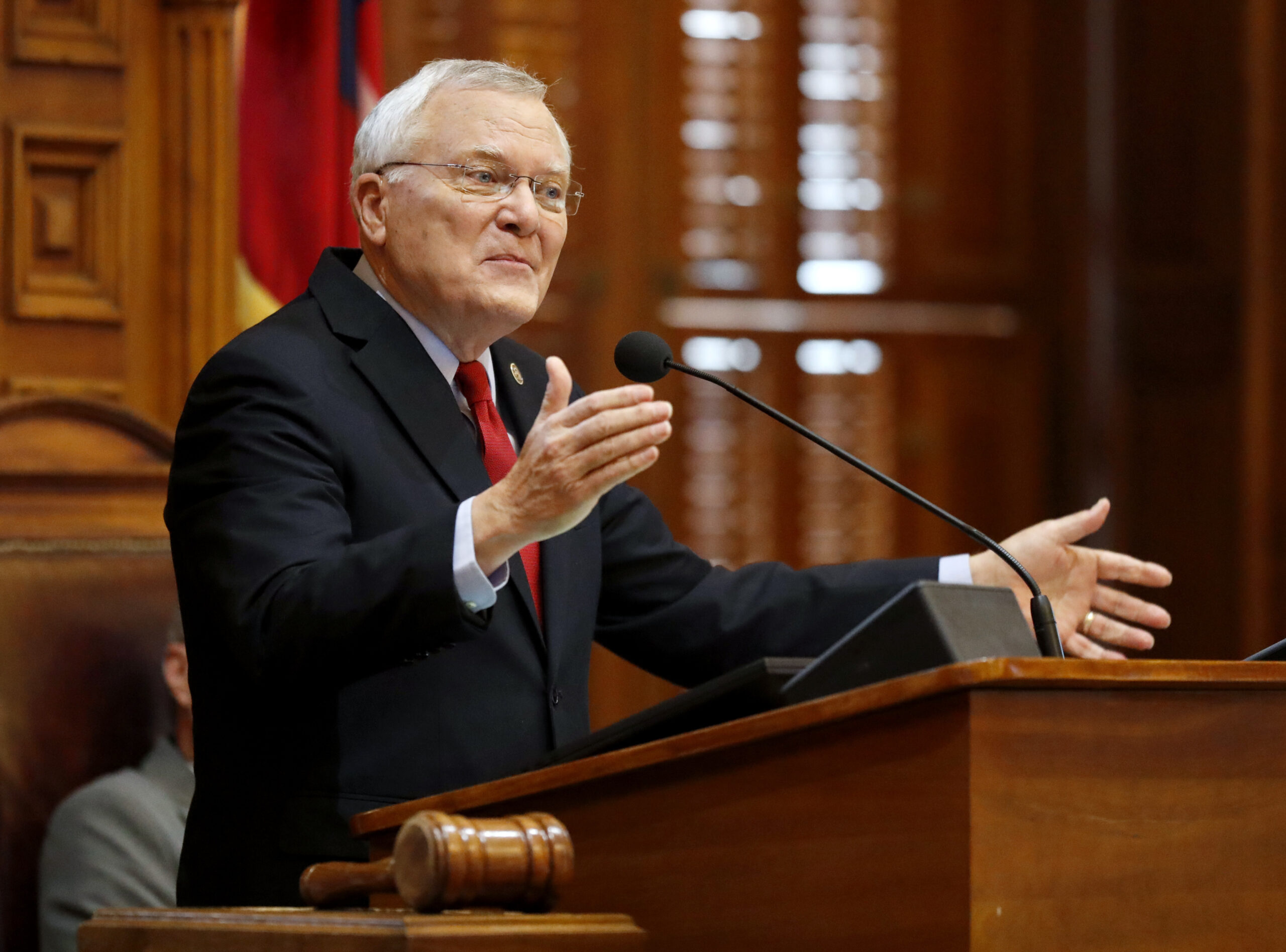Gov. Nathan Deal has one week left to take action on the bills that made through this year’s legislative session, and he has a lot of decisions to make.
With the May 8 signing deadline looming, Deal has yet to sign a bill creating a regional transit authority for metro Atlanta or another mandating online retailers collect state sales tax.
He also has to decide whether to allow some parts of the city of Stockbridge to be taken for the new city of Eagle’s Landing, and whether to make unauthorized computer access illegal even for cybersecurity research.
Deal tends to issue a handful of vetos each year. Last year, they came close to the end of the 40-day signing deadline. Any measures he doesn’t explicitly veto become law automatically.
One bill he’s sure to sign is the FY2019 state budget, which includes $167 million for K-12 public education.
It’ll be the first time the state’s met its full obligation for public school funding after years of cuts to education programs.
“Those will have long term effects on our students,” Taifa Butler, executive director of the left-leaning Georgia Budget and Policy Institute, said. “And so one year of fully funding it in 2019 is not going to make up for the years of deficit that we’ve seen.”
Still, Butler’s said she’s happy about the additional education funding. She’s hopeful the decision to return to full funding will make it harder to under-fund education in the future.
The budget also includes $360 million for Georgia’s teacher retirement system. It’s the second year in a row lawmakers have given the system a monetary shot in the arm.
“It’s very important that we keep promises to current teachers and retirees, but, at the same time, we’re going to have to move to a more sustainable plan for future hires,” Kyle Wingfield, president of the right-leaning Georgia Public Policy Foundation, said.
Lawmakers need to keep an eye on rising healthcare costs, Wingfield added.
Deal will sign the $26 billion spending plan at ceremonies throughout the state Wednesday, where he’ll also sign bills making it illegal to hold a cell phone while driving and promoting rural economic development.










